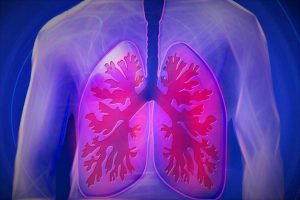Smoking promotes development of severe pulmonary hypertension


About 1% of the world’s adult population suffers from pulmonary hypertension (PH). Among the many forms of this disease is idiopathic pulmonary arterial hypertension (IPAH), a rare but very severe disease. The term “idiopathic” means that there is no tangible cause for the disease. A study group led by the Department of Pneumology at the Hannover Medical School (MHH) has determined that smoking probably plays a causal role in the development of a particularly severe form of IPAH. The researchers came to this conclusion by analyzing data from two pulmonary hypertension registries. The scientific work was published in the journal The Lancet Respiratory Medicine.
In pulmonary hypertension, the blood pressure in the lungs is abnormally elevated. People who suffer from chronic heart or lung disease are particularly often affected. A typical symptom of all forms of pulmonary hypertension is increasing shortness of breath during physical exertion. For their study, the researchers used data from the COMPERA pulmonary hypertension register, one of the largest registers of its kind worldwide, and from the British pulmonary hypertension register ASPIRE. The study leader is Professor Dr. Marius Hoeper, Vice Director of the Department of Pneumology.
For the study, the team compared three different patient groups. The first group consisted of patients with IPAH who had smoked heavily throughout their lives and in whom the so-called diffusion capacity, a decisive factor for the uptake of oxygen from the alveoli into the pulmonary vessels, was highly restricted. The second group consisted of people with a classic form of IPAH without a severely impaired diffusion capacity. The third group consisted of people who had developed pulmonary hypertension as part of a lung disease such as COPD, emphysema or pulmonary fibrosis.
“We found that the group of smokers with extremely limited diffusion capacity resembled the group with pulmonary hypertension in the context of lung disease in almost all important ways,” Professor Hoeper explains. “This included age and gender distribution, poor response to drug therapies and life expectancy.”
On the other hand, these patients differed significantly from the classical IPAH group, which was predominantly younger, responded better to drug therapies and had a significantly longer life expectancy. The study team concluded that patients with a diagnosis of IPAH and a history of smoking, as well as severely impaired diffusion capacity, should be differentiated from the group with classic IPAH.
More targeted therapies possible in the future
Source: Read Full Article